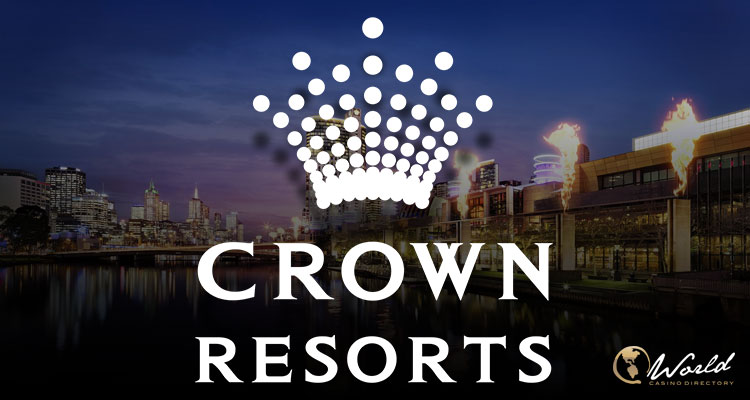
It was recently unveiled that Crown Resorts, Australia’s largest gaming and entertainment group, has been fined AU$450 million ($300 million) by the Australian Transaction Reports and Analysis Center (AUSTRAC), Australia’s anti-money laundering and counter-terrorism financing regulator, for 546 violations of country’s anti-money laundering laws related to its junket operations, notably the former Macau-linked Suncity. Additionally, if the company decides to pay the fine, it will be the biggest ever paid by a casino operator and the third-biggest fine in Australian financial history.
Settlement deal:
The fine comes as a result of a settlement agreement, upheld by the Federal Court of Australia, between the regulator and the Crown. Furthermore, the specified fine will be divided into installments, such as:
- AU$125 million ($83.4 million) – payable immediately;
- AU$125 – payable within a year;
- AU$200 million ($133.5 million) – to be paid within two years.
However, although the authorities noted that “the deferment in the fine, which is interest-free, would result in an effective discount for Crown, the court has yet to rule on the exact distribution of the penalty, as the court case continues today.”
Fine related to junket activities:
The said fine comes as a result of Crown’s junket-related activities, specifically at Crown Melbourne and Crown Perth properties. and especially at Suncity, previously the biggest junket operator in Macau, headed by the now-detained Alvin Chau, who received an 18-year prison sentence in Macau for crimes not directly related to Suncity. The court is investigating how money was distributed between Crown and Suncity between 2016 and 2020, through junket rooms in Crown’s Australian casinos and the junket’s cash desks.
In this regard, according to reports “as many as 58 complaints related to suspicious matters were filed during the 2017-2018 period, with three more police inquiries the latter year with Suncity’s cash desk.” In addition, speaking about the said reports, counsel for AUSTRAC told the court: “These involve cash deposits for sums of between AU$700.000 ($467.000) and AU$1.5 million ($1 million) carried in paper bags, shoeboxes and briefcases.”
The said method of distribution led the judge to question the conscientiousness of the Crown, with the chief justice asking: “If there wasn’t a deliberate intention to contravene the laws, the what was the reason?” Moreover, court documents disclosed that “Suncity facilitated some 252 trips for players to Australia, which resulted in AU$22.2 billion ($14.82 billion) in gambling turnover at Crown’s two properties between 2016 and 2020.”.
Admission of fault:
As part of the aforementioned settlement with AUSTRAC, which AUSTRAC reported on May 30, Crown has admitted its fault. The admission consisted of the company admitting that it had failed to properly access the transaction tracking system it had in place and assess risk, involving its failure to rank high-scoring gamblers as being at risk for criminal activity or money laundering.
Furthermore, AUSTRAC emphasized 60 high-risk Crown clients, involving 43 junket operators, which collectively generated a turnover of AU$69 billion ($46 billion). The 2 sites allegedly identified some 40 customers as suspicious, 38 of whom were included in the transfer of a total of AU$450 million ($300.3 million).
Regret and attempts at correction:
The courts have not yet judged that a complete change of Crown’s management is enough, because the company’s license to operate is still in question. However, it was decided that it was not appropriate for the company to continue to hold casino licenses in Western Australia, Victoria and New South Wales following two royal investigations and another inquiry. In this regard, in its former charges against Crown, AUSTRAC stated: “Crown has sought to respond to the failures identified in these proceedings by enhancing its approach to ML/TF risk management and investing in its financial crime compliance. We continue to work closely with Crown to ensure that their AML/CTF program and systems are compliant and fit for purpose into the future.”
As for the ongoing case, its outcome will determine exactly how much impact the charges will have on Crown’s development, involving its latest $2.2 billion Bangaroo casino, which right now operates under a conditional license.
The legal status of online casinos in India is complex and varies by state. While there is no federal law that explicitly addresses online gambling, the legality depends on state regulations and the type of gambling involved.
Key Points:
-
No National Law: India does not have a specific national law regulating online casinos. However, the Public Gambling Act of 1867 prohibits operating physical casinos and gambling houses, but it doesn't cover online platforms, leaving a legal grey area for online gambling.
-
State-Specific Laws: Some Indian states, like Goa, Sikkim, and Daman, have legalized land-based casinos, and others, such as Sikkim, have also licensed online gambling. Many states have banned gambling altogether, including online gambling.
-
Online Sports Betting: Betting on sports, particularly cricket, is very popular in India. However, it's only explicitly legal in some states like Sikkim and Nagaland, which have laws permitting online gaming and betting.
-
Legal Gray Area: Many international online casinos accept Indian players and operate legally under licenses from offshore jurisdictions (like Curacao or the UK Gambling Commission). As long as players are gambling on licensed platforms, the risk is minimal, but local authorities may still choose to regulate or restrict online gambling.
-
Cryptocurrency: Some Indian players prefer using cryptocurrencies (like Bitcoin) for online gambling, as it provides a layer of anonymity and security.
While online casinos aren't explicitly legal across all of India, many international casinos accept Indian players, and online gambling continues to grow in popularity. Players should ensure they use licensed platforms and understand local laws before engaging in online gaming.






Leave a Reply
You must be logged in to post a comment.